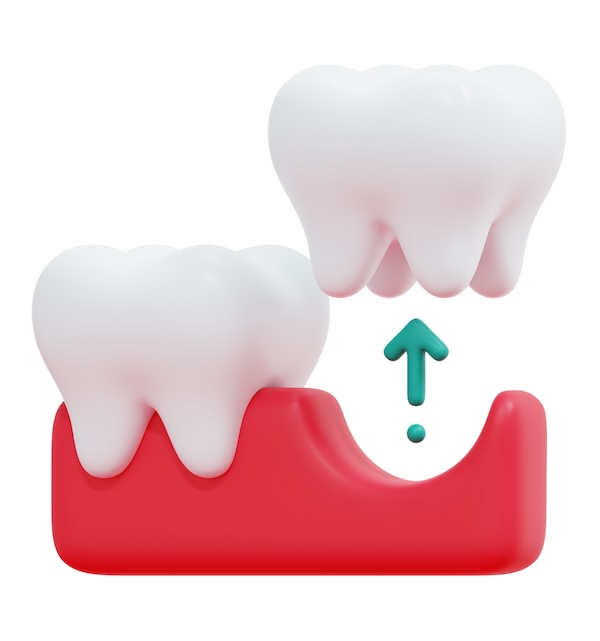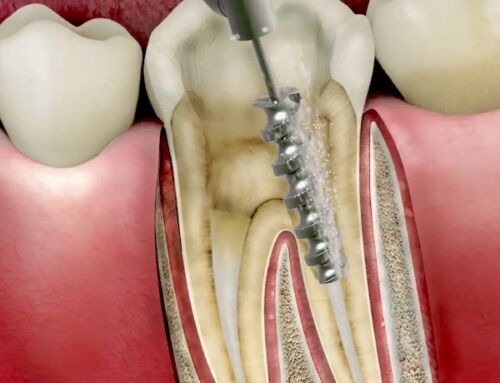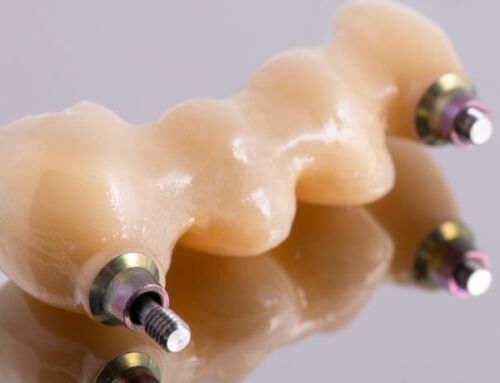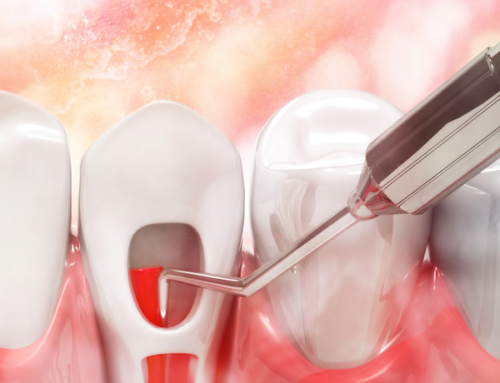The wisdom teeth, or the third molars, are the last set of teeth to develop. Ideally, there should be four wisdom teeth – one on each corner of the mouth. However, due to evolutionary trends, it is normal not to have all four wisdom teeth. In fact, some may not even have any wisdom teeth.
These third set of molars served an important purpose for our ancestors. They helped to chew tough foods such as roots and raw meats. But, as our diet changed to soft, cooked food, the third molars are no longer as often needed. So, our jaws naturally became smaller. This means the wisdom teeth usually do not have enough space to properly come out, and this causes more trouble than benefit.
This read explores the typical age range for wisdom teeth growth. Knowing this fact and what to expect as they come out can help you stay prepared and manage potential issues that may arise.
Typical Age Range for Wisdom Tooth Growth
Wisdom teeth usually start growing between the ages of 17 to 25. This is a common time for people to experience the signs and symptoms that signal the growth or eruption of these third molars. However, it can also happen earlier, later, or maybe never.
Why is this important to know?
Understanding the typical age range for the growth of your wisdom teeth allows you to be proactive in your dental check-ups. Some people do not notice they have their wisdom teeth until they experience the symptoms that come with it. With routine check-ups, your dentist can identify and treat potential issues early.
Early or Late Growth
Some people may experience variations in the growth of their wisdom teeth. Some wisdom teeth grow in during the early twenties, while some do not have them until the late twenties. This can be due to genetic factors and individual jaw size and development.
Wisdom Teeth Impaction
An impacted wisdom tooth means that some parts of the tooth or the entire tooth remain embedded in the jaw. This usually occurs because it does not have enough space to fully develop in the mouth. Wisdom tooth impaction can cause the tooth to emerge diagonally or horizontally against the cheek or even the adjacent tooth. Eventually, this will result in pain and decay, which will require extraction.
No Growth at All?
Interestingly, some people never develop their wisdom teeth at all! This can be because they do not have the genetic coding to grow them.
Importance of X-rays
A full mouth x-ray is a diagnostic tool used to locate wisdom teeth. Because impaction is a common occurrence, some wisdom teeth do not emerge in the mouth and remain hidden under the gums and bone. With x-rays, your dentist can identify the presence or absence of your wisdom tooth.
Stages of Wisdom Teeth Development
Wisdom teeth do not just appear overnight. There are several stages of development, just like your other teeth.
- Formation Stage
This is when the wisdom tooth starts forming within the jawbone. It usually starts at the age of 7 as a tooth bud. Each tooth bud represents a future wisdom tooth. You can see this in a full mouth X-ray. So, your dentist can tell whether or not you will have a wisdom tooth even before you hit your teens.
- Growth Stage
As the tooth continues to form, it will slowly start to move toward the gum line. You may experience a slight discomfort as the tooth shifts position in preparation for eruption in the mouth.
- Eruption Stage
The final stage is when the wisdom tooth breaks through the gums to appear in the mouth. This will start as a white speck in the gums. You may feel some pain or swelling, especially if there is not enough space for the tooth to properly align.
These stages of development are crucial to your dental health as it helps your dentist determine if you will have a problematic wisdom tooth.
Factors Influencing the Growth of Wisdom Teeth
Several factors can impact the growth and development of wisdom teeth:
- Genetics
Your family history plays a major role in the development of your wisdom teeth. If your parents did not have theirs, it is possible you won’t get them too.
- Jaw Size and Development
A smaller jaw means there might not be enough room for the wisdom teeth to grow properly. This will result in impacted or misaligned teeth, which may need to be removed to prevent future dental problems.
- Dietary and Cultural Influences
In some cultures where diets consist of tougher, more fibrous foods, they are likely to have larger jaws that can accommodate the wisdom teeth properly. In others, softer diets may lead to smaller jaws, leading to impacted wisdom teeth.
What to Do When Wisdom Teeth Start Growing
When your wisdom teeth begin to grow, you may experience various symptoms. Here’s what to expect and how to manage the situation:
Common Signs and Symptoms
Pain, swelling, tenderness, and discomfort in the back of the mouth may occur. Jaw pain may also arise, leading to difficulty in speaking and eating.
When to Consult Your Dentist
As soon as you experience possible symptoms related to your wisdom tooth, contact your dentist immediately for a check-up. The earlier they intervene, the earlier they can provide treatment to eliminate discomfort and you can go back to your usual routine.
Why Regular Dental Check-Ups Help
Routine dental check-ups should be done twice a year. If you are already of age, your dentist can begin monitoring the development of your wisdom teeth as they erupt. This helps your dentist understand if early wisdom tooth removal can be beneficial for you.
When Should Wisdom Teeth Be Removed?
Not all wisdom teeth need to be removed. But, if your dentist detects signs of impaction, misalignment, decay, or jaw issues, extraction is necessary to prevent more severe dental issues.
Conclusion
In summary, wisdom teeth typically start growing between the ages of 17 to 25. Some get lucky with a healthy wisdom tooth, but it is common to have problematic ones. Do not wait until you experience the signs and symptoms associated with your wisdom teeth. Instead, be proactive with your dental care and include dental check-ups as part of your annual routine. This is essential to prevent unnecessary issues with your wisdom teeth.
If you’re unsure about the state of your wisdom teeth, book a visit with Chinook Dental Group today. Our experienced team is here to help you navigate every stage of wisdom teeth growth for a smooth and healthy experience.






